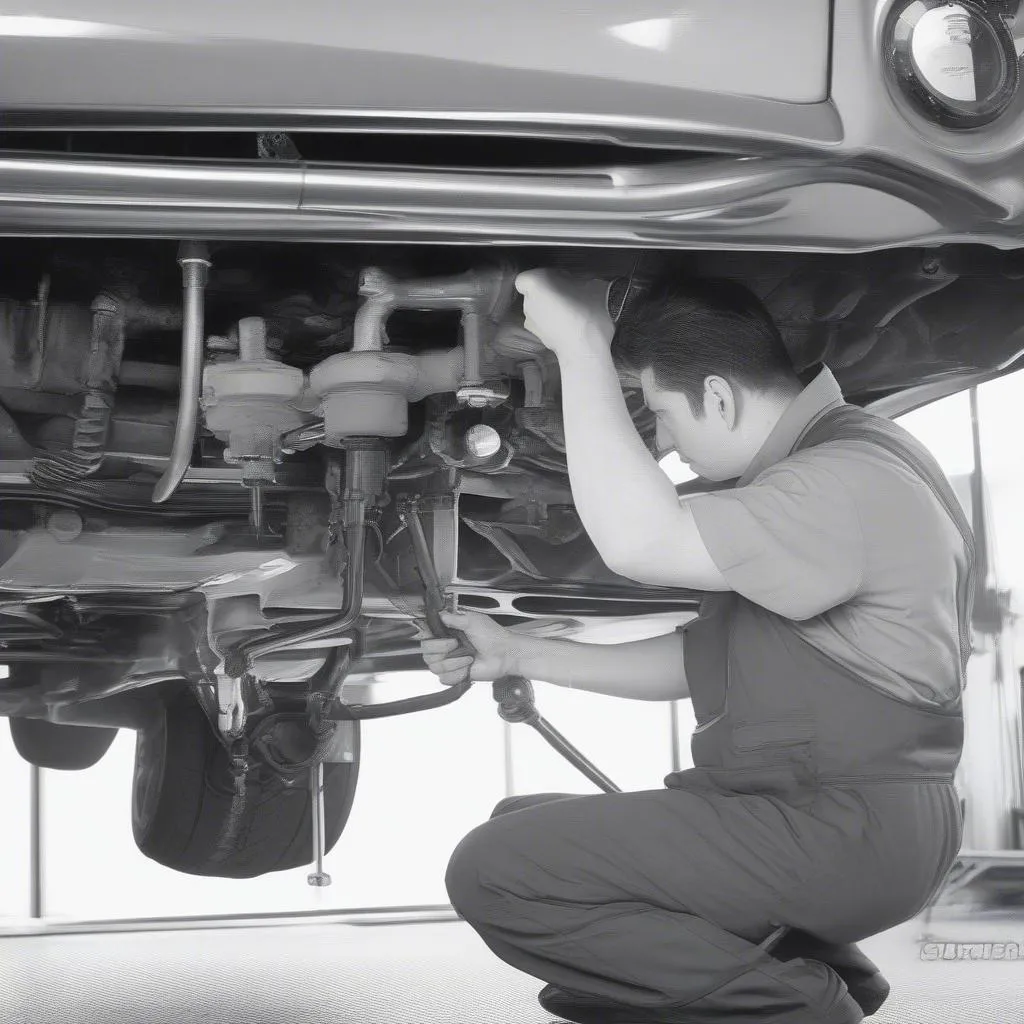Imagine driving down a bumpy road, feeling every bump and jolt as if your car were on a roller coaster. That’s the opposite of what a good suspension system should do. It’s the invisible hero of your car, keeping you comfortable and safe. But how does it actually work, and what are the signs that your suspension needs attention? Let’s dive in and explore the world of car suspension!
What is Car Suspension?
Car suspension is essentially a system of springs, shock absorbers, and other components that connect your car’s wheels to its body. Its main purpose is to absorb the shocks and vibrations from the road, keeping you comfortable and ensuring the car handles well. Think of it like a cushion between the road and your car.
The Importance of Car Suspension
Here’s why car suspension matters:
- Comfort: A good suspension system smooths out bumps and dips, ensuring a pleasant ride, especially on rough roads.
- Handling: Suspension allows your car to grip the road better, making it easier to control and maintain stability in corners and on uneven surfaces.
- Safety: It helps keep your tires in contact with the road, improving traction and braking performance, which is crucial for avoiding accidents.
- Vehicle Longevity: A well-maintained suspension system reduces the stress on your car’s body, extending its lifespan.
How Car Suspension Works
Springs
Springs are the foundation of car suspension. They absorb the impact from bumps and dips, storing the energy and releasing it gradually. Think of a bouncy castle – the springs are similar to the bouncy surface, absorbing your jumps and giving you a smooth bounce.
Shock Absorbers
Shock absorbers work in conjunction with the springs, controlling the spring’s movement and preventing excessive bouncing. They dampen the oscillations, ensuring a smooth ride and preventing the car from swaying excessively. Imagine a kid bouncing on a trampoline – shock absorbers act like the safety net, preventing them from bouncing too high and ensuring a controlled jump.
Other Suspension Components
- Sway Bars: They connect the wheels on the same axle, helping to prevent the car from leaning excessively in corners.
- Control Arms: These connect the wheels to the car’s frame, providing stability and control.
- Bushings: These act as shock absorbers for the control arms, reducing noise and vibration.
Common Car Suspension Problems
Over time, the suspension components wear out, leading to various issues. Here are some common signs that your car suspension needs attention:
- Bouncing: If your car bounces excessively after hitting a bump, it could indicate worn-out shock absorbers or springs.
- Swaying: If your car sways noticeably when you turn corners or take a sharp turn, it might be a sign of worn-out sway bars or loose suspension components.
- Noise: Squeaking, clunking, or rattling noises when driving over bumps could indicate worn-out suspension bushings or loose suspension components.
- Uneven Tire Wear: If your tires wear out unevenly, it could be a sign of misaligned wheels or worn-out suspension components.
- Vehicle Leaning: If your car leans significantly when you brake or accelerate, it might be a sign of worn-out suspension components.
Car Suspension Maintenance Tips
Keeping your car’s suspension in good shape is crucial for both safety and comfort. Here’s what you can do:
- Regular Inspections: Have your suspension inspected regularly by a qualified mechanic. They can identify potential issues before they become major problems.
- Replace Worn-Out Components: Don’t delay replacing worn-out suspension parts. This can prevent further damage and costly repairs.
- Avoid Overloading: Avoid overloading your car, as it puts additional stress on the suspension system.
- Proper Tire Inflation: Maintaining the correct tire pressure helps prevent premature wear on your suspension components.
Frequently Asked Questions (FAQs)
- How often should I get my car suspension checked? It’s generally recommended to have your suspension inspected every 12 months or 12,000 miles, whichever comes first.
- How much does it cost to fix car suspension problems? The cost can vary depending on the problem and the type of car. But generally, it can range from a few hundred dollars to several thousand dollars for major repairs.
- Can I replace my car suspension components myself? It’s possible for DIY enthusiasts, but it requires a good understanding of car mechanics and the proper tools.
- What happens if I ignore car suspension problems? Ignoring suspension problems can lead to further damage, potentially affecting your car’s handling, safety, and overall lifespan.
Conclusion
Car suspension plays a crucial role in your driving experience, ensuring a comfortable, safe, and enjoyable ride. By understanding how it works, identifying potential problems, and maintaining it regularly, you can keep your car running smoothly and enjoy the road ahead. If you have any doubts or need help diagnosing your car suspension, feel free to reach out to us! We have a team of expert mechanics who can help you with all your automotive needs.
Remember, if you need assistance with installing diagnostic tools or require any expert advice, don’t hesitate to contact us via Whatsapp: +84767531508. We are available 24/7 to assist you.
 Car Suspension Inspection
Car Suspension Inspection


